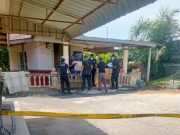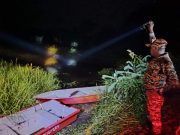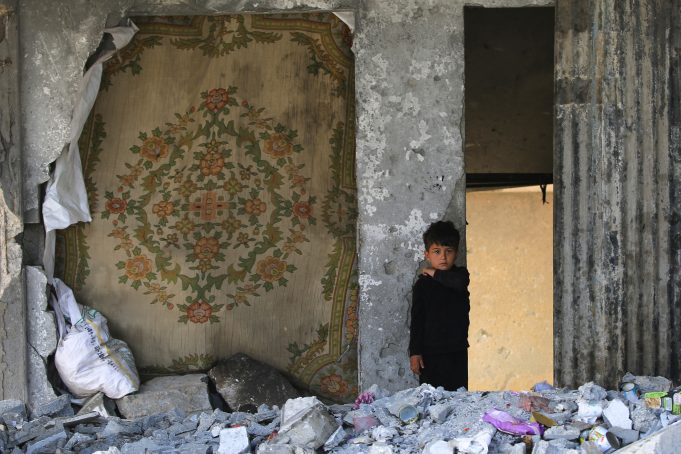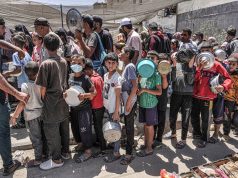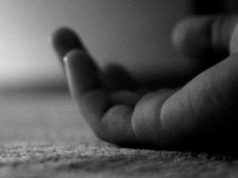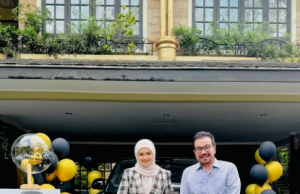THE HAGUE – The top United Nations court on Friday will rule on a plea by South Africa to order a halt to the Israeli military offensive in Gaza, with Pretoria accusing Israel of “genocide”.
Pretoria has urged the International Court of Justice to order an “immediate” stop to Israel’s campaign, including in the southern area of Rafah, and facilitate access of humanitarian aid.
Israel wants the court to toss out the request, arguing an enforced ceasefire would allow Hamas fighters to regroup and make it impossible to recover hostages taken in their October 7 assault.
In a highly-charged ruling in January, the court ordered Israel to do everything in its power to prevent genocidal acts in Gaza but stopped short of ordering a ceasefire.
South Africa argues that the recent Israeli operation in Rafah changed the situation on the ground and should compel the court to issue fresh emergency orders.
The ICJ rules in disputes between countries. Its orders are legally binding but it has no means to enforce them directly. The court has, for example, ordered Russia to halt its invasion of Ukraine to no avail.
Judges could agree to South Africa’s request, reject it out of hand or even issue a completely separate set of orders.
The ICJ’s ruling comes hot on the heels of a landmark request by the International Criminal Court’s lead prosecutor to seek arrest warrants for top Israeli and Hamas leaders.
Prosecutor Karim Khan alleges that senior Israeli leaders, including Prime Minister Benjamin Netanyahu, plus top Hamas officials, are guilty of war crimes and crimes against humanity related to the October 7 attack and the war in Gaza.
In public hearings at the ICJ last week, South Africa’s ambassador Vusimuzi Madonsela alleged that “Israel’s genocide has continued apace and has just reached a new and horrific stage”.
“Although the present application was triggered by the unfolding situation in Rafah, Israel’s genocidal onslaught across Gaza has intensified over the past few days, also warranting the attention of this Court,” he said.
South Africa charges the only way to enable humanitarian aid in to ease the crisis in Gaza is a full halt to Israel’s military operations.
It wants the court to issue emergency orders — “provisional measures” in court jargon — while it weighs the broader South African case that Israel is breaching the 1948 UN Genocide Convention.
Israel counters that South Africa’s case is an “obscene exploitation of the most sacred convention” and the picture Pretoria paints to the court is “completely divorced from the facts and circumstances”.
“It makes a mockery of the heinous charge of genocide,” said top Israel lawyer Gilam Noam at hearings.
“Calling something a genocide, again and again, does not make it genocide. Repeating a lie does not make it true,” he added.
Noam described Rafah as a “focal point for ongoing terrorist activity” and said that operations there were “limited and localised”, with no harm meant to civilians.
Israel pressed ahead with the assault on Rafah, the last city in Gaza to be entered by its ground troops, in defiance of global opposition, including from top ally the United States.
Washington voiced concerns that about 1.4 million Palestinians trapped in the city would be caught in the line of fire.
Israel has since ordered mass evacuations from the city, and the UN says more than 800,000 people have fled.
The bloodiest ever Gaza war broke out after Hamas’s unprecedented attack on October 7, which resulted in the deaths of more than 1,170 people, mostly civilians, according to an AFP tally of Israeli official figures.
Militants also took 252 hostages, 124 of whom remain in Gaza, including 37 the army says are dead.
Israel’s retaliatory offensive has killed at least 35,800 people in Gaza, mostly women and children, according to the Hamas-run territory’s health ministry.
Israel has also imposed a siege that has deprived Gaza’s 2.4 million people of most clean water, food, medicines and fuel. Agensi

